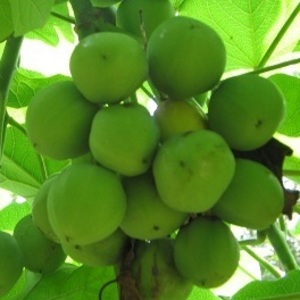SGB germination, direct seeding drive improved jatropha economics

August 22, 2013
BY SG Biofuels
Energy crop company SGB Inc. (SG Biofuels) announced it has achieved consistent germination rates of more than 95 percent with its top-performing JMax jatropha hybrids in a range of high-stress growing conditions. Jatropha is a nonfood energy crop that produces high quality plant oil and biomass.
The germination rates, achieved at temperatures exceeding 104 degrees Fahrenheit (40 C) as well as night time temperatures of less than 68 F (20 C), combined with superior genetics and professional-grade seed production practices, enable the use of direct seeding to cost-efficiently scale large jatropha projects with high-performing hybrid planting material. Direct seeding reduces establishment costs by approximately $200 per acre compared to transplanted seedlings, while enabling a stronger root system and improved water and nutrient uptake.
Advertisement
“Effective direct seeding is a game-changer when it comes to the efficient scaling of large jatropha plantations,” said Grant Aldridge, director of product development for SGB. “Through direct seeding we can now fully mechanize deployment, significantly reducing establishment time and costs while establishing stronger, more adaptive plants.”
The replicated germination data was validated across SGB’s JMax Knowledge Center locations in India, Brazil and Guatemala. In India alone, the data was generated from more than 76,000 seeds composed of 14 different hybrids.
Success for direct seeding is dependent upon the ability to achieve high germination rates in variable, often extreme growing conditions—both of which have been lacking with previous jatropha projects. High germination rates are a function of improved hybrid genetics and high quality seed production methodologies including harvesting, drying and storage.
Advertisement
SGB’s hybrids have been developed following five years of breeding, drawing from a diverse germplasm library including more than 12,000 genotypes. The performance of SGB’s hybrids has been tested and validated through the company’s research and development operations and a global network of 15 jatropha hybrid trial and agronomic research sites. SGB is deploying industry-proven seed production practices with an emphasis on germination optimization and vigor, and proper conditioning, storage and testing protocols prior to shipment.
In addition to improved germination rates, attributes of SGB’s JMax hybrid seeds include improved stress and pathogen tolerance as well as early flowering and fruiting. SGB recently announced it has identified fungal rust-resistant hybrids jatropha through its global network of field trials. Identification of the trait provides a critical defensive attribute to ensure plant health and yield preservation.
Related Stories
The USDA reduced its estimate for 2024-’25 soybean use in biofuel production in its latest WASDE report, released May 12. The agency expects soybean oil use in biofuel to increase during the 2025-’26 marketing year.
HutanBio's microalgal biofuel production shown to be net-negative in an independent life cycle assessment by EcoAct
HutanBio on May 8 announced that the production process for its proprietary HBx microalgal biofuel achieves net-negative carbon emissions, based on an independent cradle-to-gate life cycle assessment (LCA) conducted by EcoAct.
According to a new economic contribution study released by the Iowa Renewable Fuels Association on May 6, Iowa biofuels production has begun to reflect stagnant corn demand throughout the agriculture economy.
Repsol and Bunge on April 25 announced plans to incorporate the use of camelina and safflower feedstocks in the production of renewable fuels, including renewable diesel and sustainable aviation fuel (SAF).
U.S. operable biofuel capacity in February was unchanged from the previous month, according to data released by the U.S. EIA on April 30. Feedstock consumption for February was down when compared to both January 2025 and February 2024.
Upcoming Events










